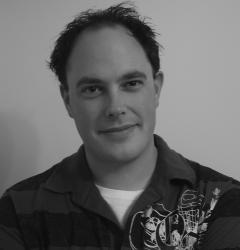7 Steps to kickstart writing
Drew Lane guides us through the dreaded creative block with some helpful advice about ‘getting creative’.
Thought I’d try something different for this week … 😉

Anyway, there are times when I want to write something, and I want to make something happen on the page or on the piano, but I get stuck. It’s not quite “writer’s block”, but it’s a frustrating state of mind that I have to fight to build a bridge and cross. So, here’s seven tips that I use that might help you kick-start writing a musical, or just get the creative juices flowing.
#1 – Choose any topic.
Don’t stifle your beginning creativity by thinking that any idea is stupid. It’s not. The best ideas are often the ones that seem the most insane. Did the Wright Brothers think man flying was stupid? No. Did Andrew Lloyd Webber think that a musical about cats was a bad idea (or even trains for that matter)? No.
#2 – Write a word.
Even if you don’t know what the story is going to be about, write something. Write a title. Write the name of a character. Write down whatever comes into your head. Again, don’t edit yourself before you even start. Some of the best ideas are the ones that never get to the page, and are lost forever – until someone else on the other side of the world takes the chance and just goes with it. Write. Anything.
#3 – Don’t think that you need to be a musician.
You don’t. Some of the best musicians in the world couldn’t write a decent song to save themselves. And some of the best songs have come from people who can only whistle. In fact, Willy Russell (composer of the award-winning musical Blood Brothers) wrote his musical with two things in mind: a great story, and with melodies that he could only whistle. If you can whistle, you can compose.
#4 – Read and listen.
Knowledge is the key. Listen to musicals, watch musicals, read the librettos, read books about musicals. The more you know, the more informed your writing will be. Don’t think that you need to know everything about musicals to start writing. (However, it certainly helps the editing process).
#5 – Have someone you can trust.
This is a person who is truly a friend – someone who will tell you what’s crap, what’s good, what they like, and what they don’t. And then they’ll tell you why. If you can find someone who can mentor you, even better. Or find someone who has written before, better still! But again, this should never stop you from starting your musical. They’re a handy person to have in your corner when the time comes to let someone have a look at your creation.
#6 – If nothing comes out, don’t sweat it.
There’ll be plenty of times when you sit down to write and nothing comes out. Don’t think of it as the dreaded “writer’s block”. It’s probably not. It could well just mean that today is not your day. Put the pen and paper down, close the laptop lid, and just let it go. Come back tomorrow. Come back next week. Come back a month later. Come back when the inspiration hits you. Don’t try and rush it.
#7 – Believe in yourself.
As it’s written in the musical Snoopy;
“If just one person believes in you,
Deep enough, and strong enough, believes in you…
Hard enough, and long enough,
It stands to reason, that someone else will think
“If he can do it, I can do it.”
Making it: two whole people, who believe in you
Deep enough, and strong enough,
Believe in you.
Hard enough and long enough
There’s bound to be some other person who
Believes in making it a threesome,
Making it three…..
People you can say: believe in me…..
And if three whole people,
Why not — four?
And if four whole people,
Why not–more, and
more, and
more….
And when all those people,
Believe in you,
Deep enough, and strong enough,
Believe in you…
Hard enough, and long enough
It stands to reason that you yourself will
Start to see what everybody sees in
You…
And maybe even you,
Can believe in you… too!”
(C) Larry Grossman and Hal Hackady.
Hope this is helpful to someone out there!
Until next time!
Blog ya later,
Drew


